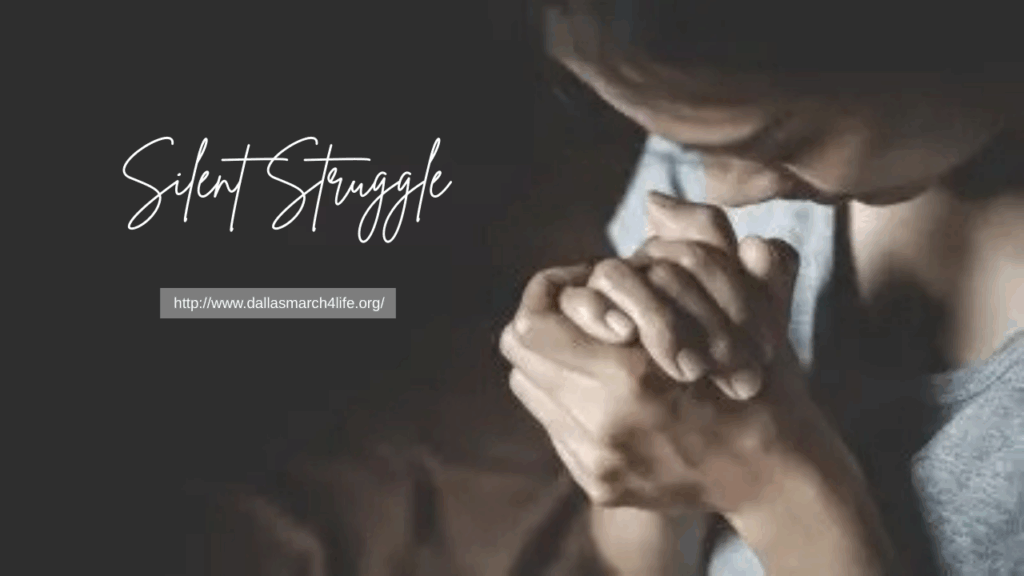
Anxiety is often called a silent struggle because it can linger beneath the surface, affecting sleep, focus, and peace of mind. For many individuals, anxiety can appear after abortion, sometimes immediately and sometimes months later. While not everyone experiences this challenge, those who do often find themselves overwhelmed by conflicting emotions, fear of judgment, or even unresolved trauma. At Dallas March 4 Life, we recognize how complex these experiences can be, and we are here to offer compassionate, holistic support for both mental health and addiction recovery.
Understanding Anxiety After Abortion
Anxiety after abortion does not look the same for everyone. Some may experience constant worry, racing thoughts, or panic attacks. Others might feel a persistent unease they cannot quite explain. These symptoms may be linked to pre-existing mental health conditions, moral conflict, or a lack of supportive relationships. Whatever the cause, it is important to know that healing is possible with the right tools, care, and community.
Common Triggers of Post-Abortion Anxiety
- Isolation: When someone feels unable to share their experience, anxiety often grows in silence.
- Stigma and Judgment: Fear of how others might respond can intensify distress.
- Faith or Moral Conflict: For individuals whose decision does not align with personal beliefs, inner conflict may create anxiety.
- Past Trauma or Mental Health Concerns: A history of depression, anxiety, or trauma can heighten vulnerability after abortion.
Why Support Matters
One of the strongest predictors of recovery is social support. Having safe spaces to talk about feelings, whether with friends, family, or professionals, reduces the burden of anxiety. At Dallas March 4 Life, we emphasize the power of community. Our inpatient and outpatient programs are designed to create spaces where people are not judged but instead guided toward peace and renewal.
Inpatient and Outpatient Care
Some individuals benefit from the structured environment of inpatient treatment, where therapy, holistic practices, and peer support are available daily. Others may prefer the flexibility of outpatient care that allows them to continue with work, school, or family responsibilities while receiving consistent mental health treatment. Both options offer individualized paths forward.
A Holistic and Faith-Based Approach
Healing after abortion involves more than addressing symptoms. We focus on treating the whole person—mind, body, and spirit. For some, faith plays a central role in processing their experience. Our faith-based programs provide opportunities for spiritual reflection while respecting every person’s unique beliefs. For others, holistic practices like mindfulness, journaling, and wellness counseling help reduce anxiety and build resilience.
Coping Strategies That Help
Alongside professional treatment, there are practical tools individuals can begin using today:
- Therapy and Counseling: Talking openly with a professional helps untangle anxious thoughts.
- Support Groups: Sharing experiences with peers can reduce feelings of isolation.
- Mindfulness and Breathing Exercises: Calming techniques bring relief during stressful moments.
- Faith Practices: Prayer, reflection, or pastoral counseling provide comfort for those who seek spiritual healing.
- Self-Compassion: Recognizing that healing is a process and being gentle with oneself is essential.
Finding Hope and Moving Forward
Anxiety after abortion may feel overwhelming, but it does not have to define the future. At Dallas March 4 Life, we believe in recovery, restoration, and the strength of personalized care. Whether through inpatient or outpatient programs, counseling, or holistic healing practices, our team is ready to walk alongside each individual with compassion and expertise.
Conclusion
If you or someone you love is struggling with anxiety after abortion, remember that you are not alone and that help is within reach. The silent struggle can become a journey toward strength, healing, and renewed purpose. Reach out to Dallas March 4 Life today to learn how our faith-centered, holistic programs can support your recovery. Together, we can move from silent suffering to lasting peace.